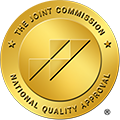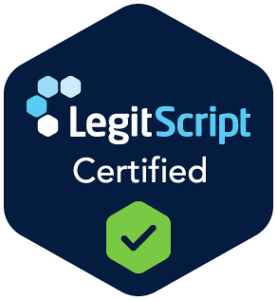What is
Addiction?
Addiction is a chronic, relapsing disorder characterized by compulsive substance use or engagement in behaviors despite harmful consequences. It affects the brain’s reward, motivation, and memory functions, making it difficult to stop without help. Addiction is recognized as a medical condition, not a moral failing, and effective treatment is available.
Addiction can take many forms, including:
- Substance Addiction: Involves the misuse of drugs (such as opioids, stimulants, or prescription medications) or alcohol.
- Behavioral Addiction: Includes compulsive behaviors like gambling, internet use, gaming, or shopping.
- Co-occurring Disorders: Many people with addiction also experience mental health challenges, such as depression or anxiety, which require integrated treatment.
Recognizing the signs of addiction is the first step toward getting help. Common symptoms include:
- Loss of control over substance use or behavior
- Neglecting responsibilities at work, school, or home
- Withdrawal from friends and family
- Physical health changes (weight loss, sleep issues)
- Increased tolerance and withdrawal symptoms
- Continued use despite negative consequences

Why Is Early Intervention Important for Addiction?
Types of Addiction Resources Available
Helplines and Crisis Support
Helplines offer immediate, confidential support for individuals in crisis or seeking information about addiction. Trained professionals can provide guidance, connect you to local services, and offer emotional support. Examples include:
Inpatient and Outpatient Treatment Centers
Treatment centers provide structured programs to address addiction:
Inpatient (Residential) Treatment: Offers 24/7 care in a supportive environment, ideal for severe addiction or those needing medical detox.
Outpatient Treatment: Allows individuals to live at home while attending therapy and support sessions, suitable for mild to moderate addiction.
Both options may include counseling, medication-assisted treatment, and holistic therapies.
Support Groups and Peer Networks
Support groups and peer networks play a vital role in long-term recovery by offering connection, understanding, and shared experience. Whether through structured programs like Alcoholics Anonymous (AA) or non-12-step alternatives like SMART Recovery, these groups create safe spaces for individuals to stay accountable and supported.
Peer recovery coaches, people with lived experience, also provide one-on-one mentorship, helping others navigate early recovery with guidance and encouragement. Together, these networks offer community, reduce isolation, and reinforce the belief that lasting sobriety is possible.
Online Resources and Telehealth Services
Digital tools make addiction support more accessible than ever:
- Online Therapy: Licensed counselors provide virtual sessions for those unable to attend in person.
- Educational Websites: Offer information on substance abuse help, recovery support services, and mental health.
- Mobile Apps: Track progress, manage cravings, and connect with support networks.
Telehealth services are especially valuable for those in remote areas or with mobility challenges.
Resources for
Families and Loved Ones
Addiction affects entire families. Resources for loved ones include:
- Family Therapy: Helps improve communication and heal relationships.
- Support Groups: Al-Anon, Nar-Anon, and other groups offer guidance for families.
- Educational Materials: Teach families about addiction, enabling them to provide effective support.
Family involvement is a key factor in successful recovery.
How to Find
the Right Addiction Resources
Choosing the right resource depends on your unique situation. Consider:
- Severity of Addiction: More severe cases may require inpatient care.
- Co-occurring Disorders: Look for programs that address both addiction and mental health.
- Personal Preferences: Some prefer group settings, while others benefit from individual therapy.
- Location and Accessibility: Proximity to home and convenient transportation options are crucial.
A professional assessment can help determine the best fit.
Financial Assistance and Insurance Coverage
- Sliding Scale Fees: Adjusted based on income
- Insurance Coverage: Most private and public insurance plans cover addiction treatment
- State-Funded Programs: Provide free or low-cost care for those without insurance
- Scholarships and Grants: Some organizations offer financial aid for treatment
Contact your insurance provider or local health department to explore your options.
Frequently Asked Questions (FAQs)
Start with SAMHSA’s Treatment Locator (https://findtreatment.gov) or call their helpline for local recommendations. Call us if you’re looking for drug or alcohol detox. We have locations in Tennessee, Florida, and Georgia.
If substance use or behaviors are causing harm or interfering with daily life, it’s time to seek help. Early signs include loss of control, withdrawal, and neglect of responsibilities.
Yes, reputable addiction resources protect your privacy and follow strict confidentiality laws, such as HIPAA.
You’ll speak with a trained professional who will listen, assess your needs, and connect you to appropriate services. No judgment—just support.
Educate yourself about addiction, offer encouragement, set healthy boundaries, and consider joining a family support group.




